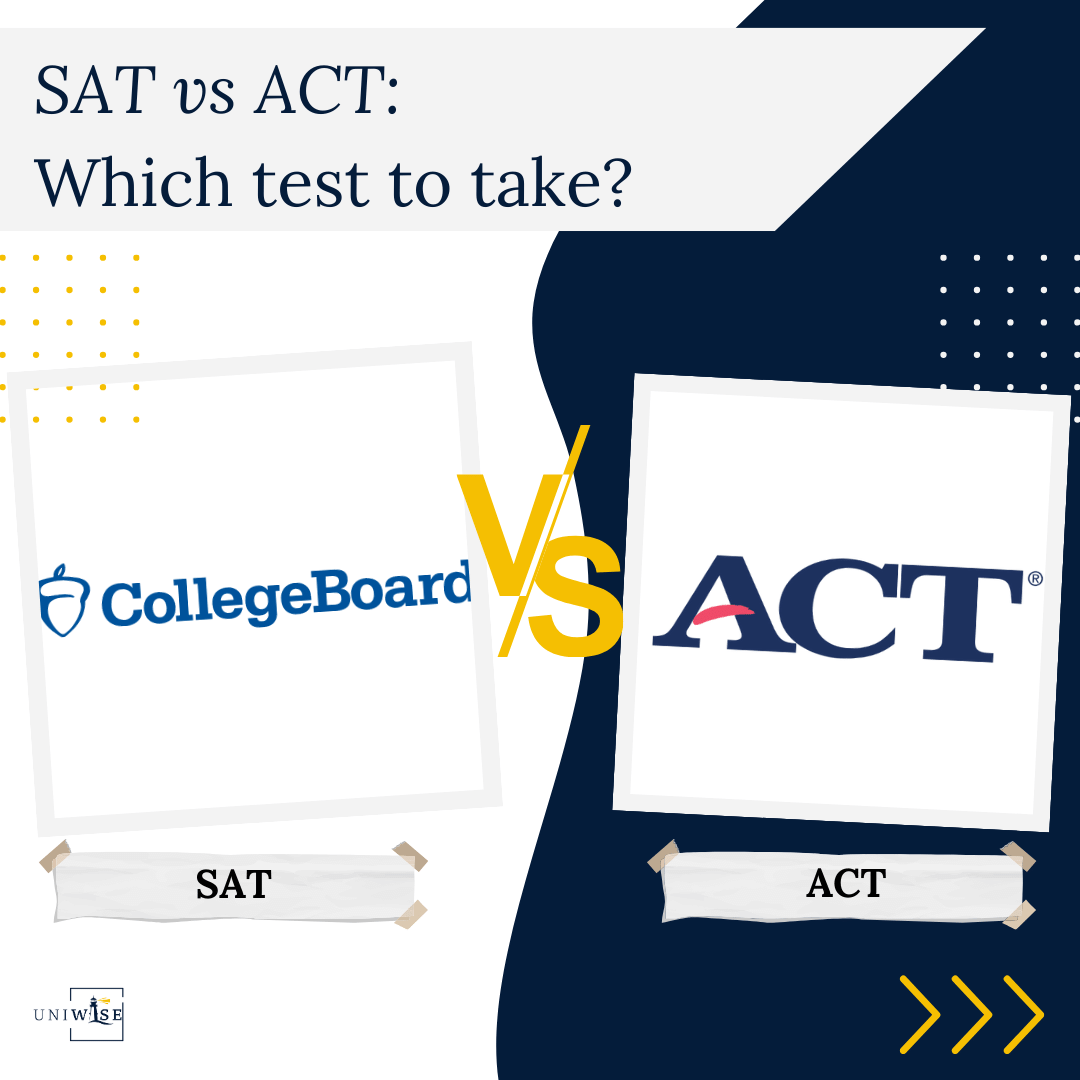How to Decide Between the SAT and ACT?
SAT vs ACT: Which Test is Right For You?
The SAT, developed by the College Board, is known for its emphasis on problem-solving and critical thinking, particularly in evidence-based reading and writing. The Mathematics section requires a deep understanding of algebra and a bit of familiarity with more advanced concepts. Importantly, the SAT doesn’t have a dedicated Science section.
The ACT, on the other hand, is administered by ACT, Inc. This test is often perceived as more curriculum-based, covering a broader range of topics. Besides English, Mathematics, and Reading, the ACT includes a Science section that tests your analytical skills in interpreting scientific data and hypotheses.
Both tests are administered digitally for international applicants. Calculators are allowed - refer to the respective policies:
What Are The Key Differences Between the SAT and ACT?
SAT vs ACT: A Summary
Scoring: The SAT scores range from 400 to 1600, while ACT scores range from 1 to 36. Colleges don’t prefer one test over the other, so your choice won’t affect your admission chances.
Content and Style: The ACT includes more straightforward, content-heavy questions, whereas the SAT requires more inference and evidence-based reasoning.
Time Management: The SAT offers more time per question, which is beneficial if you prefer a more thoughtful approach. The ACT, with its tighter time constraints, is suited for quick decision-makers.
The Science Section: If you're comfortable interpreting graphs and scientific data, the ACT’s Science section could be an advantage for you. If not, the SAT might be more up your alley.
Adaptive Testing: While the digital ACT remains a linear test just like its paper-based counterpart, the digital SAT has a multistage adaptive design. This means that the second module for each section has a “higher difficulty” and “lower difficulty” question mix depending on your performance for the first module.
How Do I Choose Between the SAT and ACT?
Analyse Your Strengths and Weaknesses: Are you a strong science student? Do you excel in mathematics? Understanding your academic strengths can guide your choice.
Practice Tests: Take practice tests for both the SAT and ACT. Your performance and comfort level can be a significant indicator of which test suits you better.
Preparation Time: Consider how much time you have to prepare. If you’re stronger in science and reading, you might lean towards the ACT. If your strengths lie in math and evidence-based analysis, the SAT might be more suitable.
Additional Tip: While it’s generally good advice for applicants to take both tests, only do so if you have the time. Most students will probably be better off choosing a single test for focused test preparation after assessing their strengths and doing 1 to 2 practice tests. The time saved can be better utilised to enhance your profile, refine your admissions essays, and focus on academic revision, where applicable.
For more information, the Official SAT-ACT Concordance Tables can be found here.
Test-Optional: Should I Still Take Standardised Tests?
Despite the shift towards test-optional admissions at some schools due to COVID-19, most top universities continue to view these scores as a vital element of the application review. In fact, there has been a growing trend among elite universities to reverse test-optional policies, with institutions like MIT, Dartmouth, Yale, Harvard, and Caltech leading the charge.
Therefore, we strongly advise students to include standardised test scores in their applications to create a more comprehensive and competitive profile.
Want to know what is considered a good score? Check out the following blog posts:
Acing your Standardised Tests for Admissions Success
Remember, both tests are merely a part of your college application. Extracurricular activities, grades, and personal statements also play crucial roles. Ultimately, choosing between the SAT and ACT comes down to where your strengths lie and which test aligns better with your academic skills and test-taking strategies. Whichever you choose, thorough preparation is key. Good luck!
🚀 UniWise: SAT & ACT Prep - Your Success is Our Mission
As admissions to top universities get increasingly challenging, so do requirements for standardised test scores. A trusted test instructor can significantly boost your scores by offering personalised guidance and expert strategies, directly targeting areas for improvement.
Reach out to learn how we can take you closer to that perfect test score. ⭐




